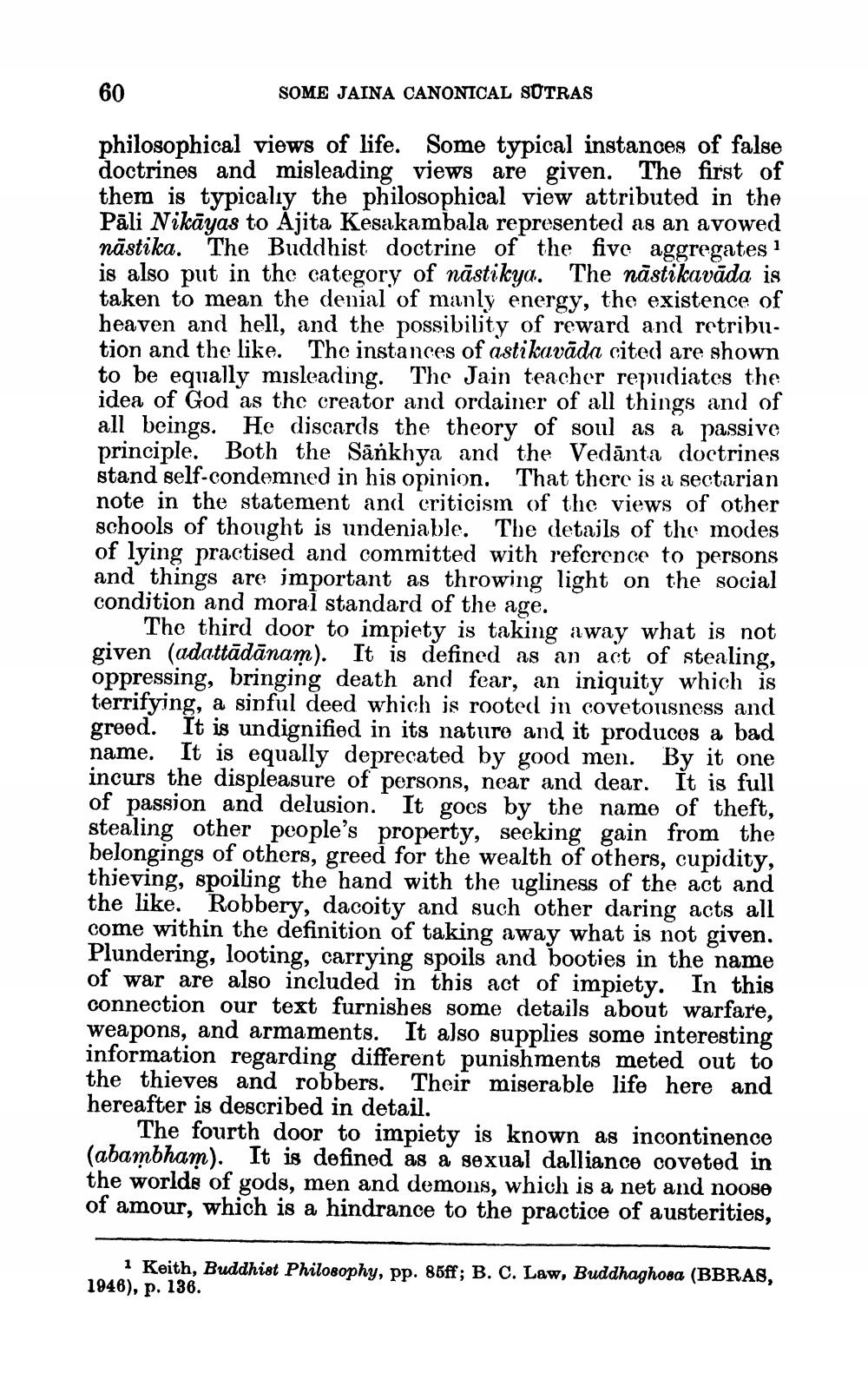________________
60
SOME JAINA CANONICAL SOTRAS
philosophical views of life. Some typical instances of false doctrines and misleading views are given. The first of them is typicalıy the philosophical view attributed in the Pāli Nikāyas to Ajita Kesakambala represented as an avowed năstika. The Buddhist doctrine of the five aggregates 1 is also put in the category of nāstikya. The năstikavāda is taken to mean the denial of manly energy, the existence of heaven and hell, and the possibility of reward and retribution and the like. The instances of astikavāda cited are shown to be equally misleading. The Jain teacher repudiates the idea of God as the creator and ordainer of all things and of all beings. He discards the theory of soul as a passive principle. Both the Sankhya and the Vedānta doctrines stand self-condemned in his opinion. That there is a sectarian note in the statement and criticism of the views of other schools of thought is undeniable. The details of the modes of lying practised and committed with reference to persons and things are important as throwing light on the social condition and moral standard of the age.
The third door to impiety is taking away what is not given (adattādānam). It is defined as an act of stealing, oppressing, bringing death and fear, an iniquity which is terrifying, a sinful deed which is rooted in covetousness and greed. It is undignified in its nature and it produces a bad name. It is equally deprecated by good men. By it one incurs the displeasure of persons, near and dear. It is full of passion and delusion. It goes by the name of theft, stealing other people's property, seeking gain from the belongings of others, greed for the wealth of others, cupidity, thieving, spoiling the hand with the ugliness of the act and the like. Robbery, dacoity and such other daring acts all come within the definition of taking away what is not given. Plundering, looting, carrying spoils and booties in the name of war are also included in this act of impiety. In this connection our text furnishes some details about warfare, weapons, and armaments. It also supplies some interesting information regarding different punishments meted out to the thieves and robbers. Their miserable life here and hereafter is described in detail.
The fourth door to impiety is known as incontinence (abambham). It is defined as a sexual dalliance coveted in the worlds of gods, men and demons, which is a net and noose of amour, which is a hindrance to the practice of austerities,
1 Keith, Buddhist Philosophy, pp. 85ff; B. C. Law, Buddhaghosa (BBRAS, 1946), p. 136.




